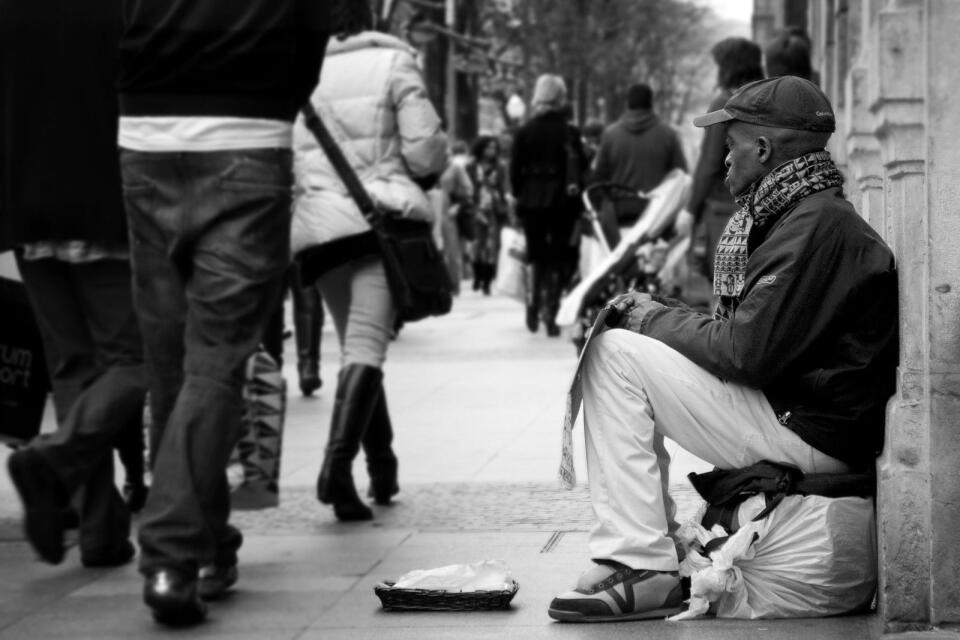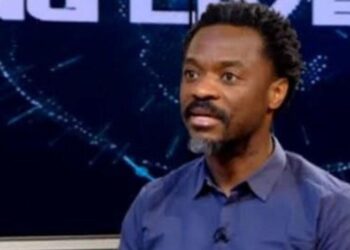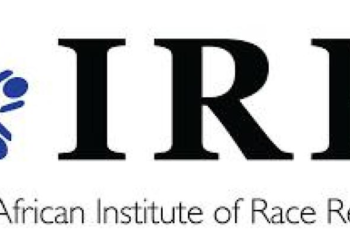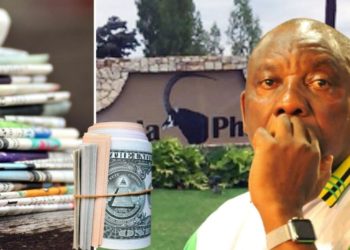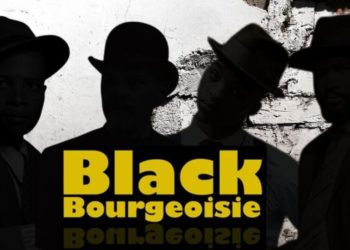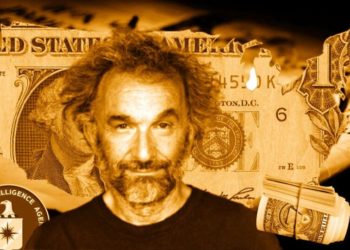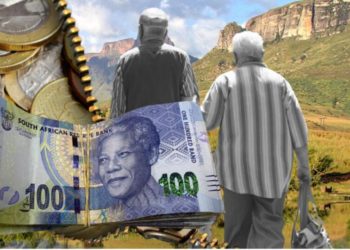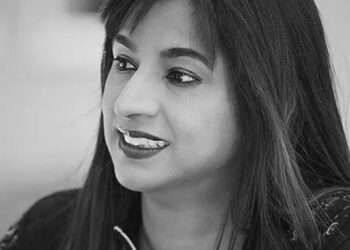Writings on the psyche of the post-apartheid ‘black middle classes’ and their struggles after two decades since their came be recognised as a distinct group are scarce. And this means that this group remains unknown besides their cantankerous behaviours on social media and other social settings. They resemble troubled souls and itch like rash on the post-apartheid dispensation.
Writings on the psyche of the post-apartheid ‘black middle classes’ and their struggles after two decades since their came be recognised as a distinct group are scarce. And this means that this group remains unknown besides their cantankerous behaviours on social media and other social settings. They resemble troubled souls and itch like rash on the post-apartheid dispensation.
Siyabonga Hadebe
One subject that l have been grappling with for many months concerns the journey of growing up and all the elements that come with it. As a former psychometrist, l have even been tempted to go back to university to complete a graduate qualification on this topic.
Psychoanalysis of groups, as a methodology, has been deployed many times before. Psychoanalysis is “a set of theories and therapeutic techniques that deal in part with the unconscious mind, and which together form a method of treatment for mental disorders”. The psychoanalytic tradition traces its origins from the likes of Sigmund Freud, Jacques Lacan, etcetera.
Frantz Fanon’s two major texts Black Skin, White Masks (1952), and The Wretched of the Earth (1961) and his lesser known works such as the essays contained within A Dying Colonialism (1959) and Towards the African Revolution (1964) set tongues wagging when he thrusted peripheral peoples who emerged right in the centre of psychoanalytical studies.
Basically, Fanon recognised mental illness as a real experience that people endure. He also offered an understanding of it as being influenced by society as well as culture. In this regard, it “opened up the possibilities of linking madness to the intractable contradictions of colonial and post-colonial societies”. Other societies like Kenya endured the emergence of the Wabenzi class and its predatory tendencies.
Writings on the psyche of the post-apartheid ‘black middle classes’ and their struggles after two decades since their came be recognised as a distinct group are scarce. And this means that this group remains unknown besides their cantankerous behaviours on social media and other social settings. They resemble troubled souls and itch like rash on the post-apartheid dispensation.
This write-up therefore attempts to look at the latent behaviours of the ‘black middle class’, its children and others in the post-apartheid era. It advances the yet to be refined “second life-orientation” to help these people to cope with the vicissitudes and hostilities of the environment created after long periods of oppression and aggression.
The elusive state of adulthood for blacks in post-apartheid
As a point of departure, it is known that when youngsters go to school, and also just before they go to university, they are encouraged to do life-orientation and career guidance to prepare them for an arduous path to adulthood. That is a move from being in the care of parents to some or complete Independence. But adulthood is not a single unit but it has many phases and dimensions: this ranges from starting a family to the capacity to remaining alive.
Of course, discussions of this nature are not treated with urgency and priority in society because everything has been “individualised” – everyone has to carry his or her own cross. Our collective sense of ensuring that we raise sound and self-assured adults is minimal, if there at all. As such, individual struggles to cope with life are seen as isolated to that “failure” in a society that praises winners and prioritises winning ahead of everything.
Life is naturally brutal and competitive, and that is known and accepted. That is why philosophers such as Thomas Hobbes and JJ Rousseau conceptualised why people got together to create communities and eventually “nations”. Rousseau’s social contract theory posits that “individuals have consented, either explicitly or tacitly, to surrender some of their freedoms and submit to the authority (of the ruler, or to the decision of a majority) in exchange for protection of their remaining rights or maintenance of the social order”.
The starting point for this theory is an examination of the human condition absent of any political order, which Hobbes termed the “state of nature”. The existence of some order in how we run and manage our collective problems aims to ameliorate what single person cannot possibly do. For example, such things as high youth unemployment, hunger and poverty as well as drug abuse cannot be left in the hands of individuals to solve on their own. These issues require collective action.
Our collective effort is also needed to build hospitals, schools, roads, churches/ mosques and recreation facilities. In our case, unfortunately, we have sort of been made to believe that this is a responsibility of politicians who, in turn, are making a meal out of our collective neglect, or ignorance. This implies that we have let our future and destiny hang in the air, and we also believe that we are hapless and without power to do anything about our diabolical situation.
In the myriad of many things that we often hear analysts and experts debate in the media, human growth and stability is neglected in favour of material conditions such as money, jobs and so on. Mental, physiological and psychological issues do not feature much in national discourses because they are regarded as least important.
At traditional level, there are initiation schools and “virginity testing” that were originally intended to help young ones’ transition to adulthood but within certain contexts. However, these interventions are now becoming increasingly unsuited for the life that we lead today. For example, these traditional modes do have a sense of corporate life and legal prescriptions. They are a misfit in capitalism and democratic setups.
The question now is: What do we have in place to assist individuals, families and communities to cope under extreme capitalist conditions? Besides looking at such things as macroeconomic policy instruments and other public policy, there is honestly nothing. This is in the context of many blacks who were youths in 1994 but today they are adults.
This cohort and their children were part of a big social experiment after apartheid. Overnight wages, standards of living and access to “soft life” changed over night. These individuals emigrated from
township and rural life to hostilities of suburban life where they are a majority that is a minority in a country that is full of contradictions.
These people are now super educated and hold influential positions in industry and other areas of social life but under very innocuous circumstances. Equally, their children attend schools where they are social outcasts. Parents and children exist in a state of psychological limbo and destitution.
They are supposed to be better than their relatives they left behind in townships and rural areas, but reality points to a different reality of hardship. Their difficulties are multidimensional in nature and are too complex to enumerate them in this write up. The dog-eat-dog environment that they live in indicates that they were not ready with the long journey to adulthood.
Unpacking the second-life, not after-life
Second-life is a phase in adulthood which begins around the late 20s and reaches its peak in the thirties. During this period, the circumstances surrounding a human being drastically change and also marks the beginning of a problematic state of true self-reliance. At this phase, people lose parents and bear children as they go through this, they have to balance their lives and those who exist around them.
Adult life comprises many variables which must be properly synchronised as the hand and its five fingers. This is called a personal equation and this equation or “mix” includes countless elements like finances, health, family, career, self-image, and many more. If these variables are not in sync, that is the beginning of trouble in adults. In this vein, one would struggle to maintain a level of sanity when he has no job or when his children are not in a good state like being involved in crime, uneducated or consuming deadly drugs.
Mental illness and other difficulties that continuously creep up among this group of people and their children is an indication of a serious problem that cannot be left unchecked. South Africa does not fully comprehend the notion of human growth and stability. For example, the country celebrates those who pass matric each year but it is rarely bothered about what becomes of these people after the last class of school.
I put a case for the second stage of life to be taken serious because it comes with many challenges that inhibit human growth and stability. Large divorce rates and failing families as well as tensions between genders are generally not good for children and society at large. Societal fragmentation extends to affect our day life at work, personal relationships and sense of community. Also dysfunctional political and institutional breakdowns can be traced back to the individuals’s inabilities to cope with second life.
In much more clearer terms this assumption argues that an individual with problems is not only disruptive but he or she has struggles at subconscious level to be part of anything that is meant to built and contribute to the growth and advancement of others. Symptoms like selfishness, narcissism and mental disorders can be healed using deliberate interventions like the second life-orientation programmes, which are a combination of public policy (e.g. social protection, cash transfers, etc.), psychological health and other collective efforts geared to provide some relief and reduce stress.
As individuals, in particular, we need a “second life-orientation” to anticipate and prepare for adulthood which most people increasingly view as a “scam”. The post-apartheid groups were never ready for what they are going through at the present. Many are realizing that the often spoken about “political miracle” in South Africa may have been hoax as they experience high debt, poverty, divorce, social breakdown, unaffordability, stagnation in careers, poor pay, teenage pregnancies, rampant ukuthwasa, drunkenness, violence and crime as well as many other challenges.
Second life-orientation entails careful planning and devising strategies of working together as a group to help individuals to navigate life together all the way through retirement. These strategies may incorporate institutions and cooperatives as well as support structures that would facilitate human growth, stability and development. Instability and vulnerability in the black communities are symptomatic of lack of “social contracts” and long periods of destruction.
The post-1994 period assumed that “markets” will correct these problems without any conscious responses to gripping problems facing black males as a sub-group within a bigger group. In this regard, academic Viviene Bolazek singled out the challenges of high unemployment and wage disparities to be among the big problems affecting black men. Black women contend with their specific struggles as well. But what is becoming clear is that neither black males nor black females can negotiate their “freedom” outside their bigger group. Hence, the proposal of second-life orientation is put henceforth.
A few years ago, Thabo Mbeki introduced the notion of “letsema” or “ilima” which sought to promote volunteerism but the second-life orientation initiative goes further in encouraging individual and community growth through collective effort. The lived experience of being a black person in a blatantly racist and uncaring society like South Africa is always neglected to understand the effects of racism on individuals and of the economic and psychological impacts of apartheid.
Apartheid does not belong in the annals of history but its continuities are forever with us. New approaches to move South Africa to a truly post-apartheid phase are now paramount after almost three decades of “black emancipation”. That power is in our hands to upgrade the black mind, life and environment to create a stable society where the black majority does not play a second fiddle. South Africa needs to change the condition of blacks from being social minority to becoming both a social and numerical majority.
Siyayibanga le economy!


